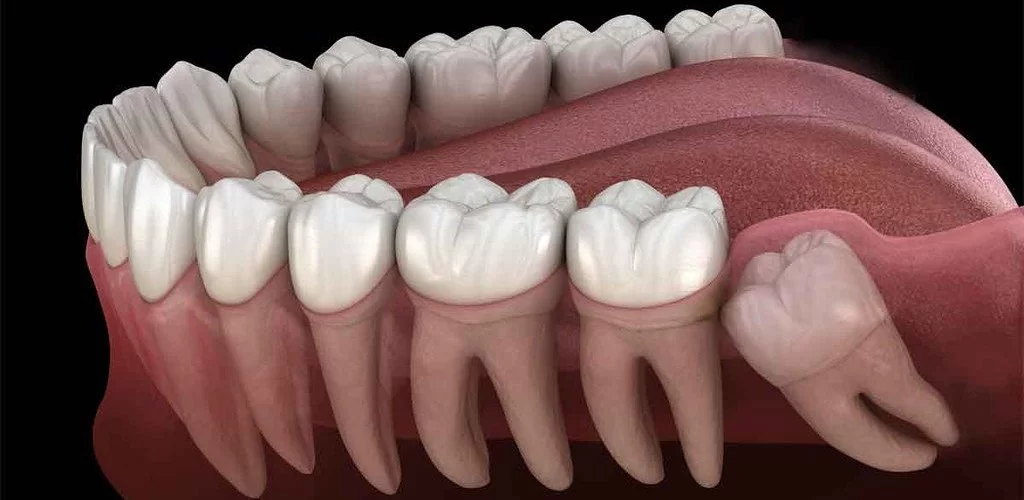Have a Question?
Contact Us Now
Contact Us Now
What is an Impacted Tooth?
Impacted teeth are teeth that do not fully erupt or are not in the correct position to erupt in the jawbone. This can often lead to pain, infection, and other dental problems. Impacted teeth are usually seen in the molars, especially the third molars (wisdom teeth).
What are the symptoms of impacted teeth?
The symptoms of impacted teeth can vary from person to person. However, the most common symptoms are:
What are the causes of impacted teeth?
How are Impacted Teeth Diagnosed?
Impacted teeth are usually diagnosed by examination and x-ray imaging performed by a dentist. X-rays help determine the exact location of the teeth and the degree of impaction. This information is critical in determining the treatment plan.
Treatment Methods for Impacted Teeth
The treatment of impacted teeth varies depending on the location of the tooth and the symptoms. Treatment options include:
Impacted Tooth Extraction: What to Expect?
Impacted tooth extraction is usually performed under local anesthesia. The procedure time may vary depending on the location of the tooth and the degree of impaction. The surgeon may cut through the gum and surrounding bone tissue to remove the tooth. Pain, swelling and slight bleeding are normal after the procedure. The healing process usually varies from a few days to a week.
What Are the Complications of Impacted Teeth?
Untreated impacted teeth can lead to various complications:
Preventive Measures for Impacted Teeth
Although it is not always possible to prevent impacted teeth, you can reduce the risks by taking certain precautions:
What are the symptoms of impacted teeth?
The symptoms of impacted teeth can vary from person to person. However, the most common symptoms are:
- Pain in the mouth or jaw area
- Swelling and redness
- Bad breath
- Difficulty chewing or biting
- Stiffness and pain in the jaw muscles
What are the causes of impacted teeth?
- A small jaw structure: This means that there is not enough room for the teeth to emerge.
- Genetic factors: This condition is more common in people with a family history of impacted teeth.
- Incorrect tooth position: If the teeth do not grow in the correct direction, it can prevent them from emerging.
How are Impacted Teeth Diagnosed?
Impacted teeth are usually diagnosed by examination and x-ray imaging performed by a dentist. X-rays help determine the exact location of the teeth and the degree of impaction. This information is critical in determining the treatment plan.
Treatment Methods for Impacted Teeth
The treatment of impacted teeth varies depending on the location of the tooth and the symptoms. Treatment options include:
- Surgical Intervention: Surgical operation may be required to remove the tooth.
- Antibiotics: If there is an infection, antibiotic treatment may be applied.
- Painkillers: Painkillers may be used to reduce pain and swelling.
Impacted Tooth Extraction: What to Expect?
Impacted tooth extraction is usually performed under local anesthesia. The procedure time may vary depending on the location of the tooth and the degree of impaction. The surgeon may cut through the gum and surrounding bone tissue to remove the tooth. Pain, swelling and slight bleeding are normal after the procedure. The healing process usually varies from a few days to a week.
What Are the Complications of Impacted Teeth?
Untreated impacted teeth can lead to various complications:
- Infections and abscesses
- Damage to surrounding teeth
- Dental cysts or tumors
- Jaw problems and pain
Preventive Measures for Impacted Teeth
Although it is not always possible to prevent impacted teeth, you can reduce the risks by taking certain precautions:
- Regular dentist check-ups
- Good oral hygiene
- Awareness of genetic factors and early intervention when necessary




